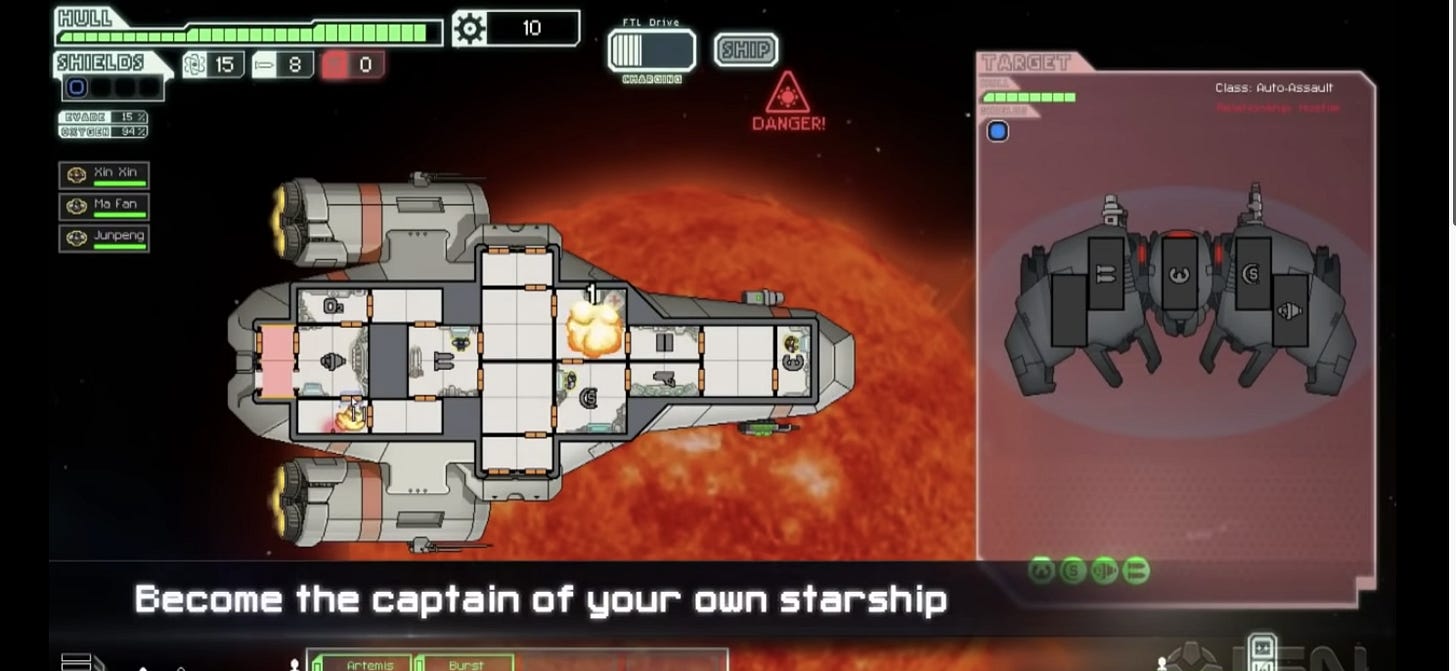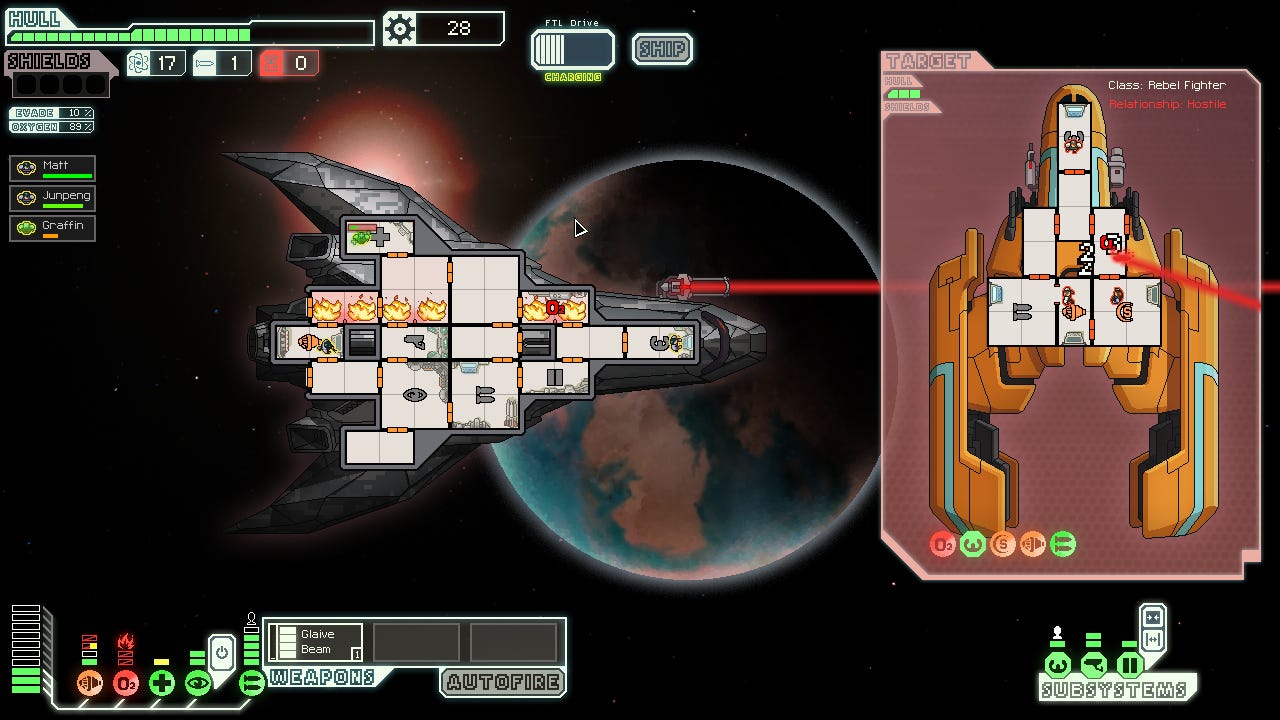FTL: Faster Than Light
High-stakes decisions and Lean Startup parallels in a space-themed video game
This is an interlude: it’s not a draft from the upcoming startup book, but hopefully still interesting and relevant… Let me know if it was or wasn’t.
One of my superpowers/flaws is seeing patterns and connections between unrelated things. Like how I believe there is about a 90% overlap between improv comedy and mindfulness meditation: be present, heighten awareness, notice what’s there, acknowledge your fears, “you are enough”.
Last week I watched a talk from a videogame conference on the making of the space fighting game FTL: Faster Than Light. The principles they followed to create the game overlap quite nicely with creating a startup company.

“Dying matters”
At the top of his list was death, a mechanic traditionally used to teach players what they had done wrong. “I think games have lost the idea that dying matters. Which was actually all that [I wrote] down: ‘Dying matters,’ this concept that dying does punish the player.” — Source: David L. Craddock Anything But Sports: The Making of FTL – Chapter 1)
Not failing seems like a good objective when building a business or product. But failing matters. Learning from failure matters. The goal is to fail in a way that lets you keep going, better and stronger.
FTL started with identifying a gap
“Casting players in the role of a commander in charge of keeping a vessel and its crew in one piece was a situation most games did not explore. In most space-themed games, players were pilots in charge of one small ship and focused on shooting down enemies.” — Source: David L. Craddock Anything But Sports: The Making of FTL – Chapter 1)
They didn’t know what the game would be, but they wanted to create that experience. Be the commander of the ship, not the pilot. Their vision was to give players the feeling of being Captain Kirk or Admiral Adama. No other (video) game did that.
Take inspiration from anywhere. They drew inspiration from tabletop games and Tetris instead of the ‘competition’ (other spaceship games).
Run experiments to answer questions
Can we do this?
Is it fun?
Is it worth doing?
They started building the game to find out if their idea would work, starting with a small ship to make it more manageable. They wanted a proof of concept. Once it got to “playable” stage they tested it.
First playable experiment: What was fun? What was not fun? Where could we go from here?
Follow the fun
“It was fun to see the damage and chaos inside the other ship, so we kept that.”
They kept building and iterating, keeping the core experience in mind as the reference point.
Example: micro-managing each character to a particular square on the map wasn’t fun or aligned with playing as a ship commander. So they designated the whole room the “engine room” so you as commander could just click anywhere in the engine room to send a character to sort it out.
More of this, less of that.
Build, measure, learn, iterate.
From a team of two to building in public
After a very successful Kickstarter campaign they now had different pressures.
Managing expectations — both the expectations they had set, and the ones people created for themselves.
How do you increase value without changing the core experience? Instead of changing the gameplay or increasing scope, they put more money into the soundtrack and a writer to help develop the scenarios. This increased the quality and experience but kept the core focus the same.
Who are you making this for?
They constantly had to make decisions based on who their ‘core’ player was. Devoted gamers or casual gamers? The audience determines the features, difficulty level etc.
Unexpected changes — in testing, the players didn’t care about the things the designers expected. So they had to adjust.
On all the other things they really wanted to add to the game: “Just because it would be good, doesn't mean it would improve the game. … We cut features because it was good as it was.”
Being a startup founder | Commanding a spaceship
Some ways the experience of playing the game mirrors the experience of starting a business:
You’re exploring the unknown
There are lots of ways to play, and be successful
The game is procedurally-generated, which means that every journey is different. The overall goal might be the same, with some common feelings evoked, but the tactics that work for one player/play-through may not work for another
Luck plays a part in success. Some people have it easier than others.
You have to adapt your strategy and tactics based on your observations
Not everyone enjoys the difficulty or the experience. Not everyone plays the same.
You’re making high-stakes decisions in the midst of pressure of uncertainty
Sometimes you have to fight fires
Sometimes you have to make sacrifices
Want to play? Head to https://subsetgames.com/ftl.html
Watch the GDC presentation or read more about the history
Do you want more of these interludes? None? Hit reply and let me know!








